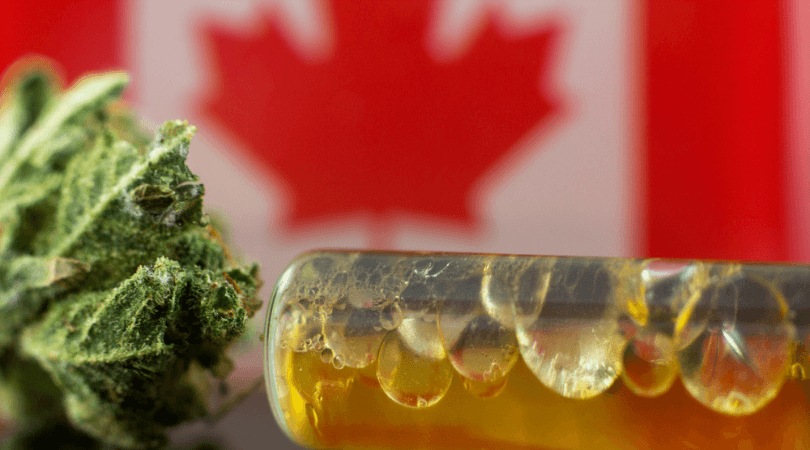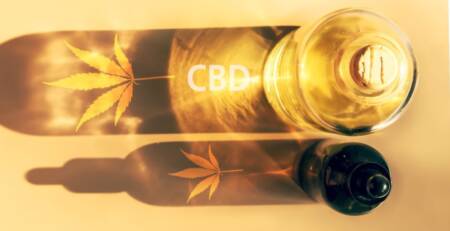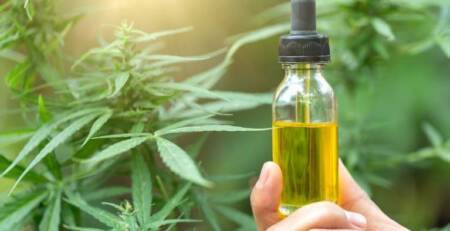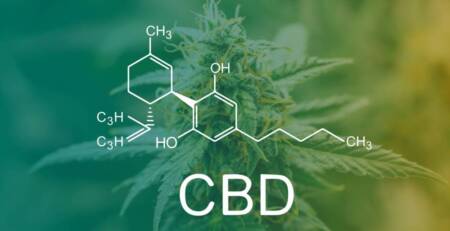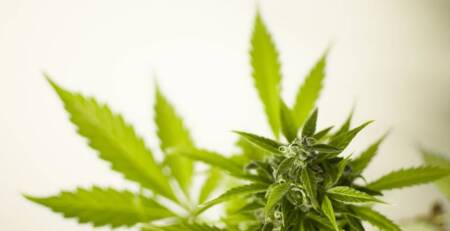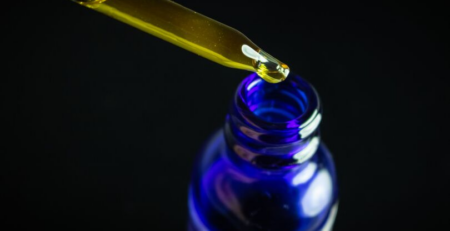Canada CBD Laws
Cannabis enthusiasts across Canada celebrated the plant’s legalization on October 17. People could finally head to a dispensary and buy CBD and THC products without worry. Stock markets and journalists predicted that these products would become hot trends throughout Canada, and people began to look for jobs in the cannabis industry.
So why are people and businesses who sell CBD still getting letters telling them that they are selling illegal products? How does this affect the CBD you buy and the way you shop for cannabis products?
CBD, which is derived from cannabis, is regulated in a similar way to cannabis. CBD products won’t get you high, but that doesn’t mean that any retailer or person can start selling CBD without interference from the law.
The ins and outs of CBD legalization can be confusing, but you are interested in buying or selling CBD, know the law. It is a lot easier to play by the rules than to try and skirt around them and get caught. In this blog post, we’ll break down everything you need to know about Canada CBD laws and how to enjoy CBD products without the fear of fines or other consequences.
What Is CBD?
Before we start to talk about the laws regarding CBD, let’s talk about what CBD is in the first place.
CBD is a shortened name for cannabidiol, a chemical compound found in hemp and cannabis. While it doesn’t produce any psychoactive effects (aka, it won’t get you high,) it still offers a lot of different benefits. Different strains of cannabis contain different levels of CBD. Some strains, like Harlequin, contain high levels of CBD and no THC. These strains are used primarily for medicinal purposes. CBD oil and extracted CBD can also be added to other products for medicinal or recreational purposes.
CBD doesn’t get you high, unlike THC. For that reason, many businesses have assumed that CBD products have always been legal in Canada.
CBD Oil vs. Hemp Oil
CBD is derived from cannabis or hemp plants. Hemp oil is a lot more accessible than CBD oil, and hemp oil is basically the same thing as CBD oil, right?
Wrong. While CBD is still found in hemp, CBD levels in hemp oil are almost undetectable. Using hemp oil will not give you the same benefits as using CBD oil. If you are ingesting some hemp oil to relax, the only effects you will feel will be the result of the placebo effect.
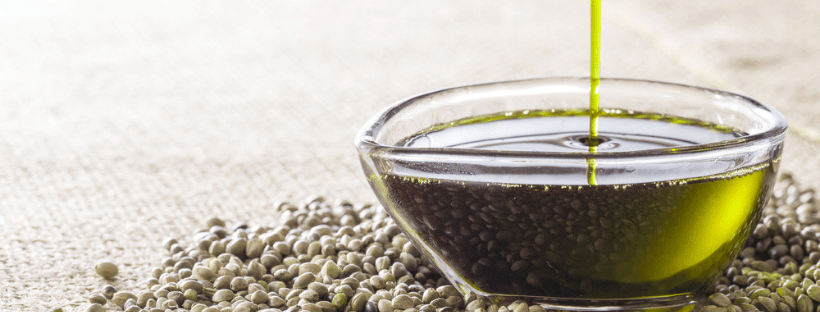
CBD Products
Consumers can get CBD oil or CBD isolate on its own. These products do not have a taste or an odour, and can be ingested orally to provide all of the benefits of CBD. CBD oil, like weed oil, can also be placed in a cartridge for consumers who prefer to vape their CBD.
These oils can also be placed in a wide range of oral and edible products. Similar to weed brownies or gummies, consumers can purchase CBD candies and other products that they ingest and digest. CBD teas are also on the market, and other types of CBD beverages are constantly named as an up-and-coming trend in the cannabis industry.
Many brands have put CBD oil into topical products, including massage oils, lotions, or even bath balls. If you prefer to use a CBD topical, check out our guide on how to pick and use these products.
Benefits of CBD
Why are people so eager to buy CBD in the first place? The answer lies in a long list of benefits of CBD oil.
A handful of studies have been conducted on CBD, and the results give a lot of CBD manufacturers the confidence to promote the following benefits of CBD:
- Pain relief
- Anxiety/stress reduction
- Anti-inflammatory effects
- Reduces frequency of seizures
- Treats Alzheimer’s
- Fights cancer
Again, studies can prove that regular CBD consumption can produce some of these benefits. But cannabis is a Schedule 2 drug in Canada and the United States. Legalization has increased demand for studies on the effects of CBD, but Canada’s regulatory bodies still have some apprehension about guaranteeing and pushing the miracle medical benefits of CBD. It is one thing that affiliate marketers and brands have to be careful of when they promote CBD products.
Basics of Cannabis Legalization
Is CBD legal to consume? Yes, because it is derived from cannabis.
On October 17, Canada legalized the purchase, sale, and growth of cannabis products. Canadians of a certain age can buy cannabis and possess up to 30 grams for personal use. Enthusiasts who want to grow cannabis at home may have up to four plants in a private residence.

Cannabis and International Travel
Cannabis legalization has opened up a lot of doors for cannabis consumers, but borders are still shut. It is illegal to bring cannabis into Canada from a foreign country or leave Canada with cannabis products. Even if you are driving to a state in America where cannabis is legal, taking cannabis products out of Canada is strictly forbidden. Travellers who attempt to transport cannabis without declaring it at the border may face serious consequences, including jail time and fines.
If you are travelling to a state in America where cannabis is legal, it’s best to save your money and buy weed at a licensed dispensary when you reach your destination. Don’t risk transporting cannabis across borders.
You don’t have to be present at the border to bring illegal cannabis products into Canada. Canadians who purchase American cannabis products may find that they wasted their money. Federal authorities will confiscate cannabis products that they see coming through international mail.
CBD Laws in Canada
The Cannabis Act is not as comprehensive as one might think; there are still a lot of questions about ordering edibles and other products that contain cannabis. But in general, Canadians should treat CBD like other cannabis products and err on the side of caution.
CBD was Illegal For Recreational Use Before October 17
CBD products entered the market before cannabis products with THC. Before you could buy a gram of Northern Lights at a local dispensary, you could find buy CBD balms or other products at local stores. The presence of these products, and the business owners promising their legality, was largely what contributed to the confusion regarding CBD and cannabis use before October 17.
But how long was CBD legal in Canada? And how has cannabis legalization changed the way that CBD is bought and sold?
Before October 17, CBD oil and other products derived from cannabis could only be consumed by patients who received a prescription for CBD from a doctor. Licensed manufacturers could produced CBD products for medicinal purposes, but without a license, CBD products were illegal.
Can I Sell CBD Products Now?
Now that cannabis is legal throughout Canada anyone over the age of 18 in Canada can buy CBD or THC products for recreational or medicinal use. (Age may vary based on the province you live in.) Retailers must have a license, however, to sell CBD products. If a retailer has not registered their CBD products with the Canadian government, they are violating the law by selling products with CBD.
(If you want to make CBD products for your own personal use, you will not have to apply for a license.)
Want a license to legally grow, sell, or distribute cannabis products? You’ll need to go through a strict screening process with the Canadian government. Want to grow cannabis for medical purposes? This process is even more tough. Currently, only 23 out of over 100 licensed producers are registered to sell marijuana and cannabis for medical purposes. Everyone who is prescribed medicinal cannabis must purchase products made from one of those 23 producers.
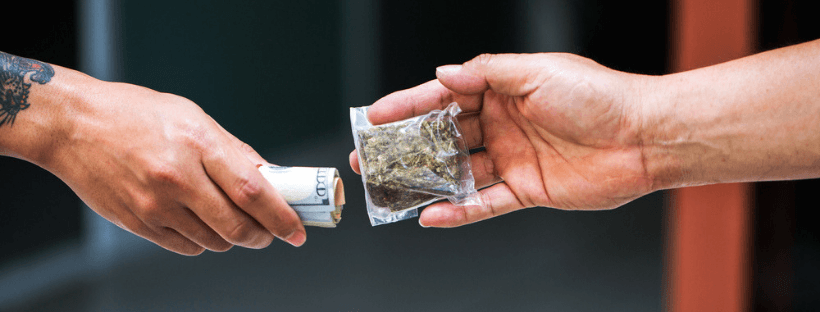
About CBD Affiliate Programs
If you don’t plan on opening up a store selling CBD products, this news may not feel relevant. But if you do plan on buying CBD, or have any interest in becoming a part of an affiliate program, you still need to pay close attention to the law. Know who you are buying CBD from and look out for opportunities that could get you in trouble.
Consumers can only buy cannabis products made from licensed retailers. Don’t forget that these must be licensed Canadian retailers – bringing cannabis products over the border, even if they were manufactured in an American state that has legalized cannabis, is still illegal. It always has been, even though some sneaky cannabis retailers have tried to convince consumers otherwise.
HempWorx: A Cautionary Tale
Let’s shine a light on one situation that caused a lot of confusion for CBD buyers and sellers. HempWorx, a multi-level marketing company, has been selling CBD products throughout the United States and Canada since 2017. They encourage people to sign up for a program that allows them to make a commission as distributors selling CBD products through social media and other digital platforms.
HempWorx reassured their distributors that CBD oil was 100% legal and had a wide variety of miraculous side effects. Distributors are not penalized for making these claims and were encouraged to share how HempWorx products treats, prevents, and cures certain chronic conditions and diseases.
There’s only one problem with this: these claims made by HempWorx and their distributors are lies. Even licensed retailers cannot guarantee that CBD has certain health benefits that have not been approved by the federal government.
In May 2018, before cannabis was legal in Canada, Health Canada specifically asked that people who saw advertisements for HempWorx and similar businesses should report their findings to authorities. HempWorx was forcd to stop selling its products. They promised an August 1 launch date, but soon after denied that date.
HempWorx is still a largely successful company throughout the U.S. with plans to expand into different countries around the world. But remember, you cannot bring cannabis products into Canada for any reason, despite claims made by distributors or businesses themselves.
This is a cautionary tale for anyone who may want to sell, distribute, or even CBD products. Don’t trust friends and family selling CBD; research retailers before you buy.
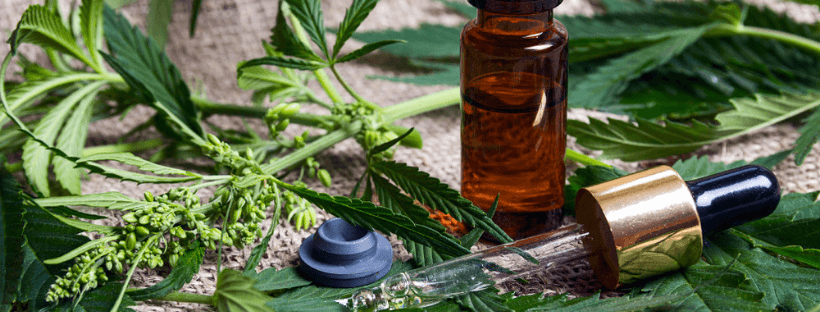
Do Your Research Before Promoting CBD Products
MLMs are not the only way that passionate consumers can make money by selling cannabis products. Affiliate programs also give people the opportunity to make a little money by promoting cannabis products and brands. You don’t need a license to become an affiliate because you are not physically selling or distributing the products. An affiliate’s job is simply to direct users to a website where they can purchase products.
Before you sign up with an affiliate program, make sure you are working with a licensed retailer. You don’t want to take any dirty money from a brand that is operating illegally.
Aspiring affiliates should do extra research before they take on the task of promoting or selling CBD products. Again, know the company that you are teaming up with. Are they licensed to sell CBD in Canada? Do they market their products with big promises and guaranteed results? Do you have a choice in how you portray the products? If you are hesitant, again, err on the side of caution.
The same principle applies if you want to make a purchase through affiliate links. If you want to buy CBD products through a friends’ link, do a little research on the company first.
CBD and Cannabis Laws May Change
It has only been a few months since cannabis was legalized in Canada, but already, Canadians have run into a lot of questions and confusing situations. New legalization is set to clear up some questions about cannabis products, but progress may feel very slow.
Again, we urge you to do your research before you purchase CBD products. Stick to licensed retailers and avoid buying cannabis outside of online/physical dispensaries. If you want to purchase CBD for medicinal use, consult a healthcare professional.
Know how much you are buying and if you want to make your own cannabis products, don’t sell them. Pay close attention to the news and stay informed as these laws may change over the next few months or years.

